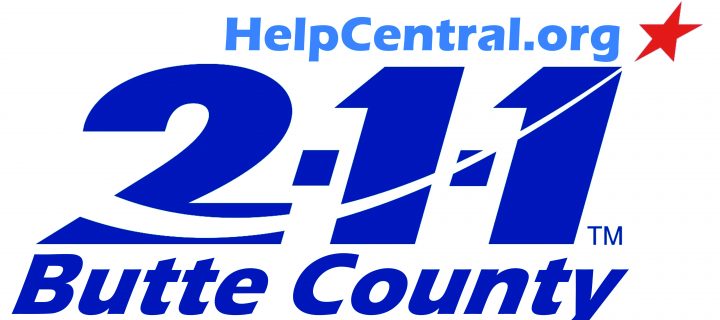Kids and teens are constantly changing. The transition from a nap-resistant energetic toddler to a teen who sleeps until noon can seem like a flash in time. With rapid growth and significant changes going on, how can parents tell which changes are normal? Should parents be worried that their child’s tantrums or teenager’s mood swings may be something more than just age appropriate “growing pains?” It can sometimes be hard to tell. For some kids, these changes are not just a part of growing up—they may actually indicate symptoms of an underlying mental illness.
In young people, many mental illnesses- about 50-70%- show up before age 18. Mental and emotional troubles can have a significant impact on a child’s development. It may affect a child’s performance in school and their social interactions and relationships with other kids and adults. When not treated early, mental illnesses can disrupt normal development and may affect children for the rest of their lives. Sometimes families do not seek help because of lack of information or possibly because of the stigma associated with mental illness. But, if kids get help early on, effective treatments can help improve their lives now and in the future.
One of the challenges when addressing a child’s mental health is finding available services. Here in Butte County, a new web site has been created to guide parents and professionals toward effectively locating children’s mental health services in their community. Butte 2-1-1 and the Butte County Department of Public Health have partnered to create a free public web site which includes a searchable resource guide to help Butte County residents find mental health providers serving children and youth ages 0-18. The web site is found at www.mentalhealth4youth.net and contains more than 200 low-cost and no-cost mental health resources, including crisis hotlines and crisis intervention, counseling services, mental health evaluation and treatment services, plus prevention and support groups. The site also includes many resources to support parents, especially new moms who may be dealing with extreme new challenges.
The web site was designed as a simple and convenient tool to be used by anyone who cares for, or interacts with children. Parents, teachers, health professionals, home visitors, social workers, child care providers, police officers, coaches, religious counselors, and relatives can use the online resource guide to help children who could benefit from diagnosis or treatment services related to mental health.
“When a child has behavior issues, or a teen is struggling with anxiety, or a toddler is not reaching developmental milestones, parents, health care providers, or teachers may need help finding services for the child and family,” said Tara Sullivan-Hames, the Director of Butte 2-1-1 and project manager. “This web site helps them take the next steps in finding information and learn what services are available to help that child. Using the web site, they can locate programs that will evaluate mental health needs and offer counseling, therapies, and other types of mental health support.”
The objective of the new project is to address our community’s need to improve access to mental health services for children and youth. Local assessments of community health indicate that one in five children experience mental health challenges. Another study determined that Butte County residents register the highest scores in California for Adverse Childhood Experiences (ACES). ACES are trauma-related experiences in childhood that result in not only mental and emotional health challenges, but also physical illnesses and disabilities. “With ACES being a crucial topic of awareness in Butte County, this project supports early identification and early intervention to help little ones thrive,” said Sullivan-Hames.
The mentalhealth4youth web site has been structured into four main categories and 16 specific subcategories of mental health services. The intent is to guide the user into search topics that will identify appropriate resources. Services listed on the web site cover a wide range of mental health needs for very young children as well as teens. The resource guide includes telephone hotlines and texting lines for suicide prevention, group, individual, and family counseling, play therapy and parent child interactive therapy for young children, support groups for children who are grieving the death of a loved one, child guidance for behavior disorders and developmental guidance, assessments for autism or for psychiatric disorders, anger management, and prevention services related to relationship violence. Many of the services accept Medi-Cal plans, offer sliding scale fees, or accept payment through Victim Witness funds. The web site also includes a link to a searchable directory of private therapists.
The online tool also allows users to refine searches by choosing filtering search options. Users can select the city where the child and family is located, the age of the child, what type of insurance or payment is accepted, and whether language services are available for Spanish and Hmong speaking clients. The filter function helps professionals identify referrals to give the family and helps parents know which services can offer immediate assistance for their child.
The resource information also includes some handy tools for making referrals easily. Referral information can be texted to a client’s cell phone or sent to an email address. A one-click link also displays a location map of the service which can be printed out or a map link can be sent by text or email. “Being able to text or email the information to a parent or to a caseworker is really a great tool for improving access to services. Any way we can get that information into the hands of parents where they can act on it, the better the hope that the child and family will receive the help they need,” said Sullivan-Hames. Recognizing the reality of busy families and professionals, the site is also optimized for mobile devices.
Parents and care givers are integral for successfully accessing services. The web site includes supportive services for parents to help them learn about their children’s mental health needs and also to support their own well-being. In particular, the Mothers Strong project is listed to help new moms who may be struggling with pregnancy related or postpartum depression and/or anxiety. This resource includes information on mental health screening for moms and access to therapists and support groups which in turn produces healthier outcomes for newborns and other children in the household.
Resource information included on the mentalhealth4youth web site is being updated as part of the comprehensive Butte 2-1-1 community resource database. The web site will receive an annual update at minimum, but in actuality, most of the resources will be updated more frequently and on demand as needed when services change. “We are counting on the service providers to keep 2-1-1 informed of any changes in the programs and services,” said Sullivan-Hames. “We’ll be contacting them regularly for updates, and as soon as they notify the 2-1-1 specialists that there are changes, the corrected database information will update automatically on the mentalhealth4youth web site.”
There is also a feedback survey posted on the web site. Users can answer a couple of questions about their search for services and send the feedback directly to Butte 2-1-1 staff. This will help support accurate and timely information updates.
Do not worry if the thought of using the online search seems overwhelming! If you are unable to locate an appropriate mental health service on the mentalhealth4youth web site, you can call or text 2-1-1 directly for live help. Simply dial 2-1-1 or text your zip code to 898211 to speak with a 2-1-1 information and referral specialist (If the situation is an emergency, dial 911). Your inquiry with 2-1-1 is always confidential. The Butte 2-1-1 specialists are trained social workers who can assess the needs of the caller, help identify appropriate resources and options, and offer follow up support. 2-1-1 is open 24/7 and is a free service, serving Butte and Glenn County residents.
www.mentalhealth4youth.net – Use this web site to find mental health services for children and youth ages 0-18.
Services listed include:
Crisis
Counseling
Assessment & Treatment
Mental Health Support Services
Call 2-1-1 for help locating providers if you cannot find the services you need.
2-1-1 is free, confidential, and multilingual.
You can also text your questions to a live 2-1-1 Information and Referral specialist. Text your zip code to 898211 to connect.
If you work with children, call 2-1-1 to set up a staff training on how to use the new guided search tool to connect children and youth with available mental health services. Kids need someone to talk to about their troubles. Teens need an outlet for their emotions. Find support services for them by using the guided search tool at www.mentalhealth4youth.net.





